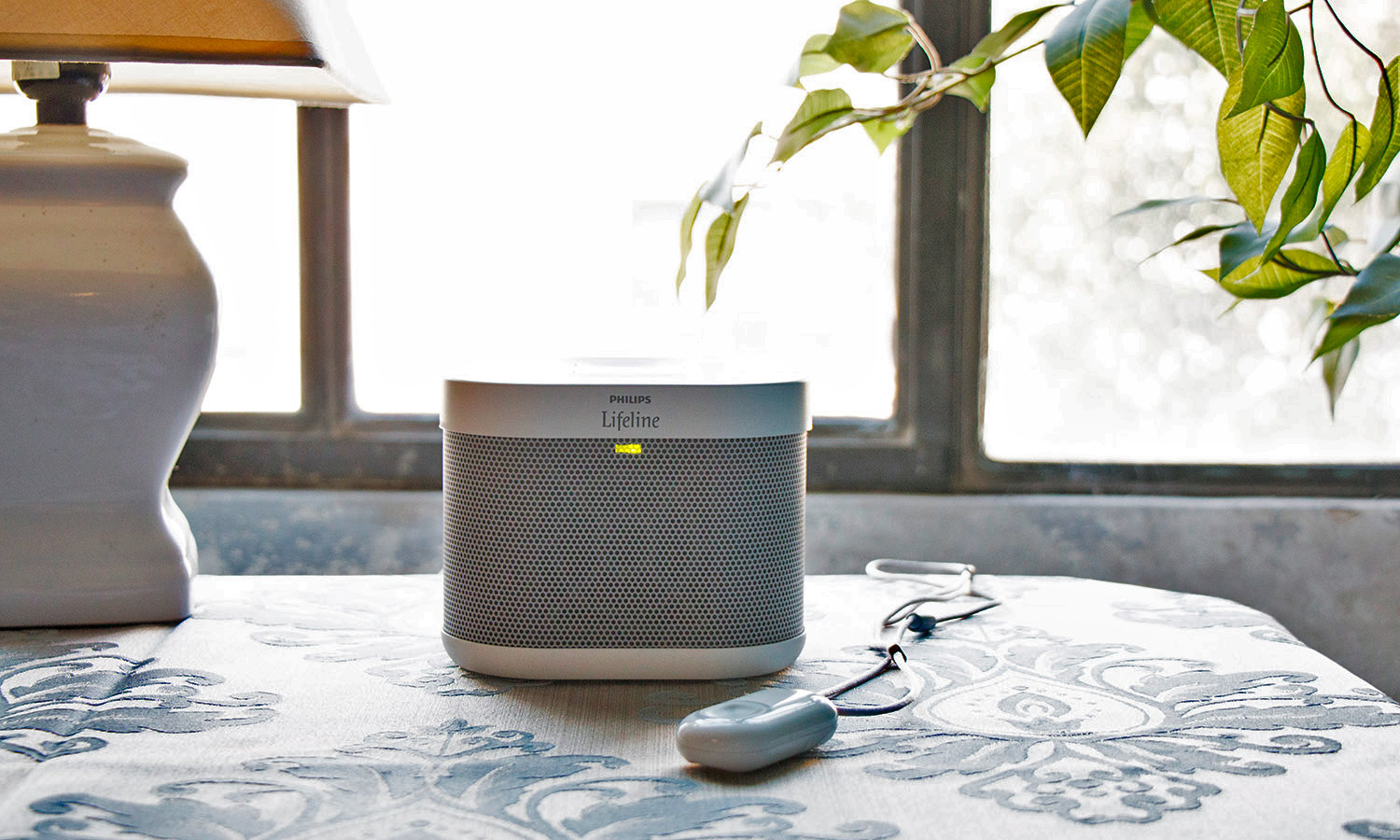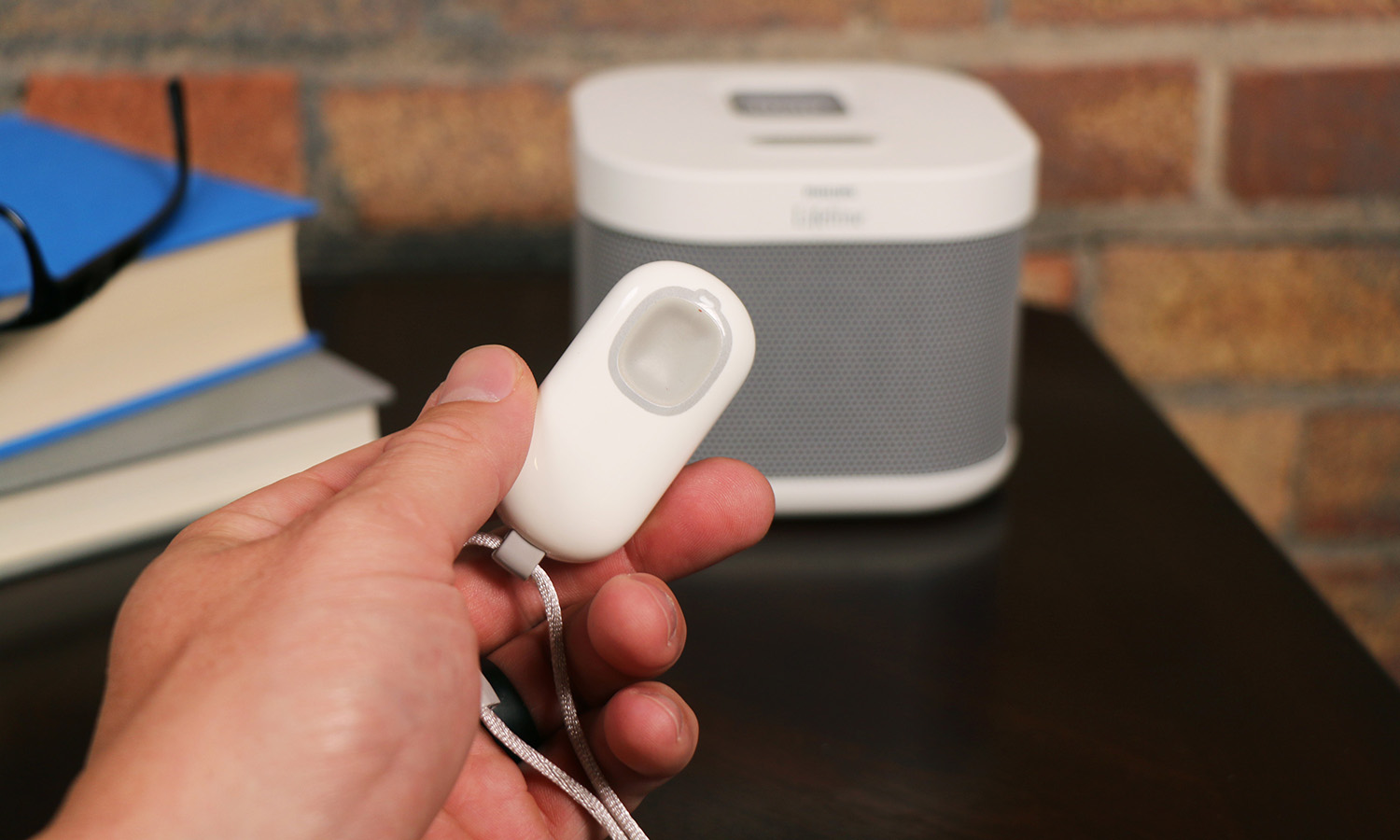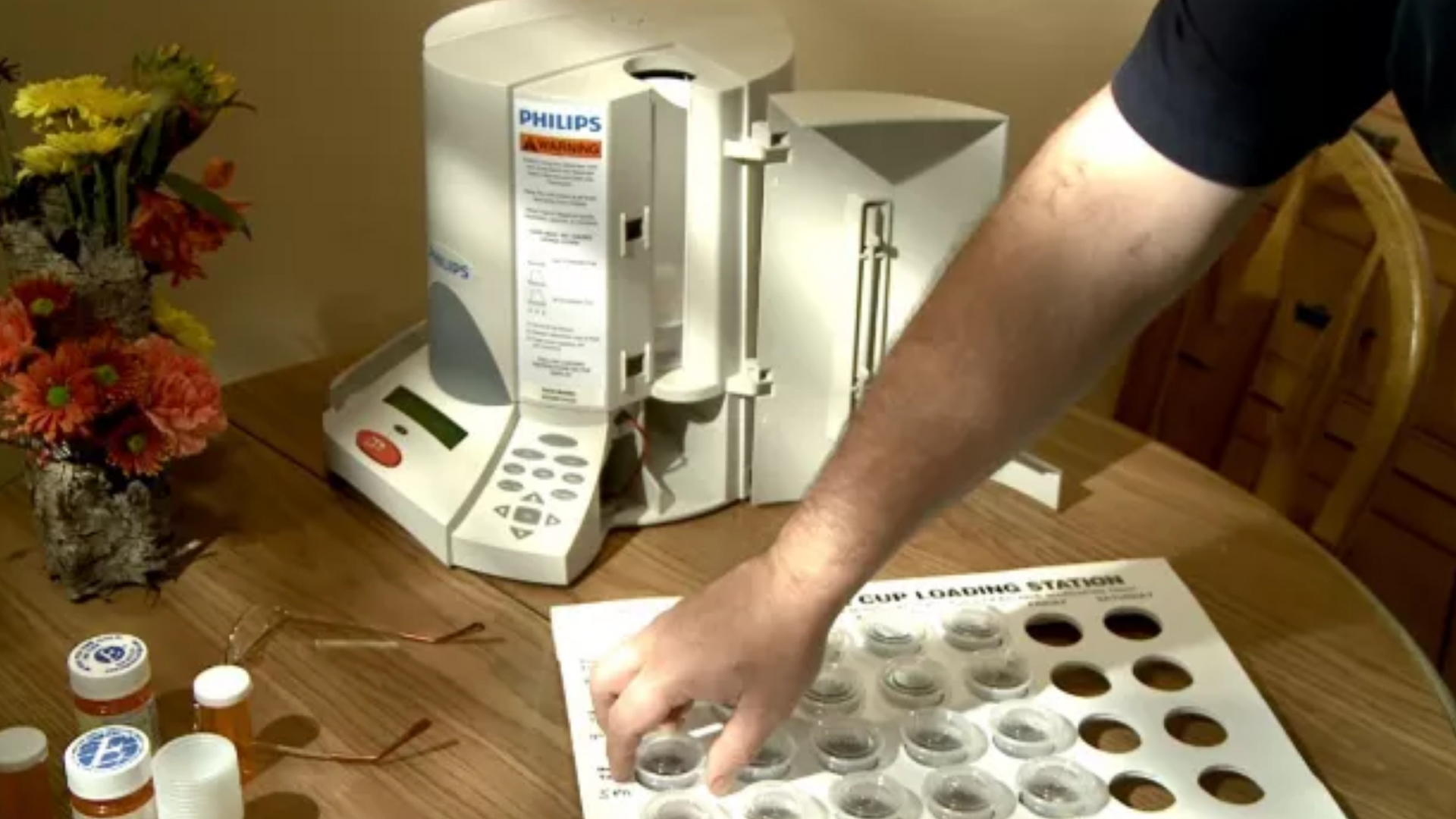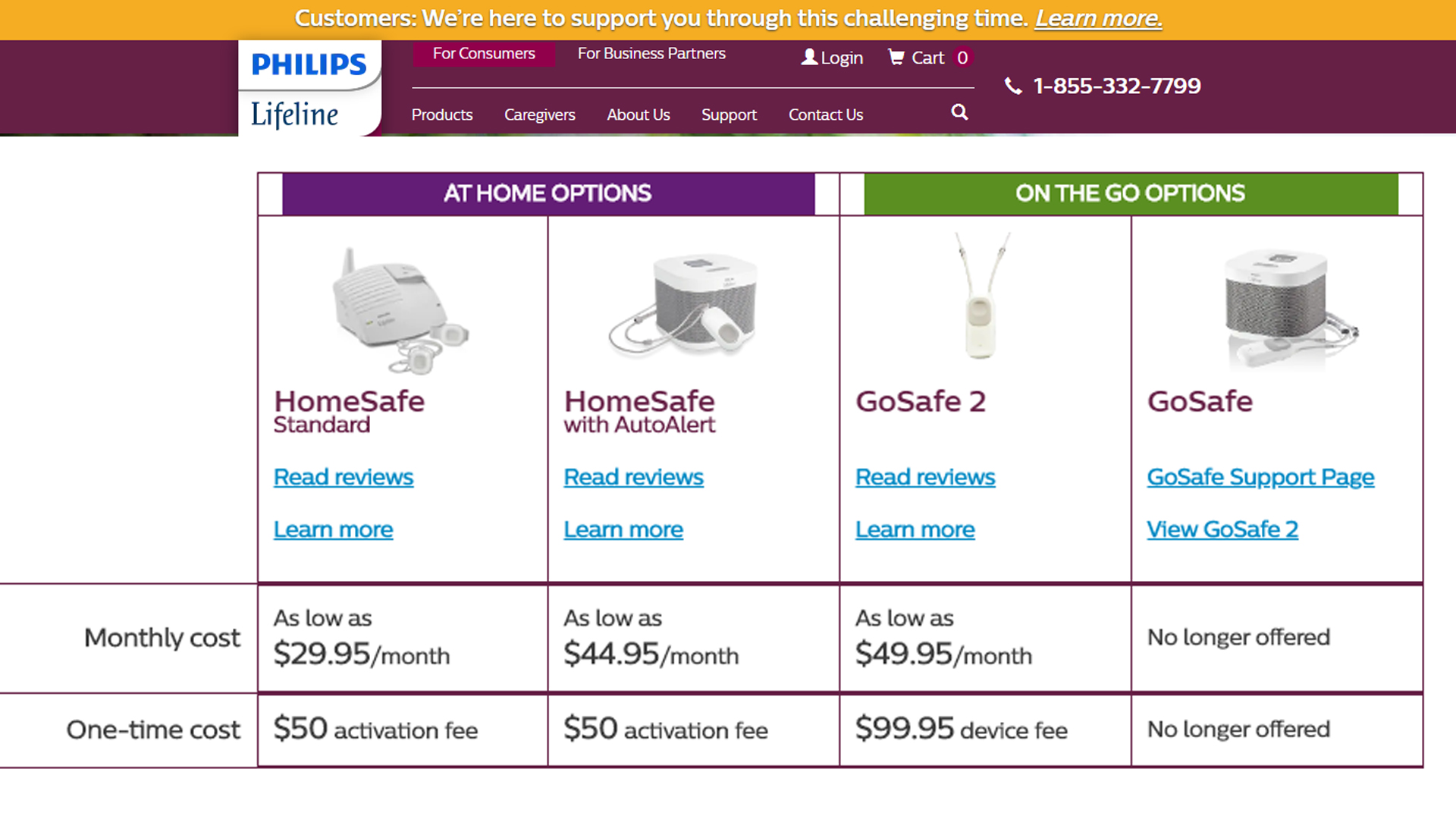TechRadar Verdict
Lifeline's unique medical alert systems are developed in-house, but overall performance and pricing are average. While it has its own monitoring center, call quality and speed are not as strong compared to competitors. The HomeSafe's wireless pendant has a good range, but package costs are ordinary. Consider all options carefully when choosing a medical alert system.
Pros
- +
Unmatched pendant range in our tests
- +
Excellent speakerphone quality
- +
Guaranteed satisfaction
Cons
- -
Subpar performance overall
- -
Limited support options
Why you can trust TechRadar
Lifeline is perhaps the most recognizable name in the medical alert industry (formerly known as Philips Lifeline), behind only Life Alert. In 1972, gerontologist Andrew Dibner envisioned a personal emergency response system for older adults, and in 1974 The Dibners founded Lifeline Systems and expanded their business to hospitals and other healthcare organizations in the U.S. and Canada. Lifeline grew and went public in 1983 introducing advancements such as waterproof personal alert buttons and centralized Response Center operations. Technology progressed again, and in 2010, Lifeline introduced automatic fall detection technology. Connect America acquired Lifeline in 2021, with Philips maintaining an equity stake, with the combined business offering an enhanced personal emergency response system portfolio.
In our evaluation of Lifeline's medical alert systems, we hoped for a more remarkable performance. While the company provides systems not commonly offered by others, which is commendable, the overall structure closely resembles other services, including landline, cellular, and mobile packages. However, the performance and pricing aren't sufficiently distinctive.
Philips Lifeline: Medical alert systems
Our tests revealed that HomeSafe has the most extended average range among medical alert systems, spanning 149 feet. We conducted the testing in an apartment complex with multiple walls and floors separating the pendant from the base station. This range allows users to move a considerable distance from the base station and still make an emergency call. Notably, the average range for other systems was around 77 feet. While 149 feet may be an extensive range for some seniors, it demonstrates HomeSafe's exceptional signal strength and reliability.
Bear in mind that the more you move away from the base station, the less likely you are to successfully communicate with the emergency operator. On the one hand, if the operator cannot effectively communicate with you, they will dispatch an ambulance. On the other hand, you may easily receive a false alert from this distance and be completely unaware that your pendant has called for help, particularly if you are using a fall detection pendant.
Although the HomeSafe has excellent audio quality, the lack of loudness compared to the MyTrex and MobileHelp CBS-02 raises concerns about its long range capabilities. However, the clarity of the audio is a redeeming factor.

The On the Go mobile solution, a mobile medical alert system, provides a substantial improvement over its predecessor. Unlike the previous GoSafe, which combined a mobile system with an in-home system, the On the Go mobile solution features a better speaker and a similarly shaped "pill" device that is aesthetically more pleasing to wear and use than most other mobile medical alert systems we've tested, although some seniors may prefer a smartwatch. This resolves the communication issues we experienced with the pendant in the previous model.
Through a series of simulated falls, the On the Go mobile solution's fall detection showed average performance. We evaluated the pendants' sensitivity and accuracy, and the auto fall feature functioned approximately 50% of the time. While not being overly sensitive, this strikes a balance between false alarms and reliable fall detection.
Philips Lifeline: Emergency response center
The Lifeline website previously claimed a 22-second average response time from the moment a user presses the help button to when they are answered by an operator, but this has been subsequently removed. Our testing, however, revealed a different experience. In the first round, the average response time was 54 seconds, making it the seventh fastest among the services tested. GreatCall, for comparison, had an average of 20 seconds. In the second round, Lifeline averaged 49 seconds, which is roughly average. As we never encountered a response time close to 22 seconds, it is fair that the claim of 22 seconds has been removed.

We also weren’t impressed with the quality of the calls. Lifeline’s operators were often difficult to understand, as they often spoke fast or with a strong accent, resulting in many requests to repeat themselves. In some cases, the operators sounded bored, speaking in a monotone reserved for those with little interest in what they’re doing.
Philips Lifeline: Medical alert service
Lifeline's medical alert systems are manufactured by the company itself, which is a unique feature that sets it apart from other services. However, the training and quality of these systems left us unimpressed. Furthermore, the pricing erodes any potential value that these features might have. Additionally, the company owns and operates its own monitoring center, which means it has complete control over the training and quality of the staff.

The Philips Care app, included with every medical alert system, offers a centralized platform for caretakers and family members. Through the app, family members can check in on you remotely and receive text notifications whenever you press the help button, keeping you connected and supported. You can also check on the charge status of the battery.
Philips Lifeline: Cost comparison
After its acquisition, Lifeline has become one of the most competitively priced medical alert services. The HomeSafe landline system's monthly fee of $29.95 is average, while the cellular version costs $39.95 per month, comparable to other in-home cellular systems. It's worth noting that adding the AutoAlert fall detection feature will increase the monthly cost by $10. Each package has an activation fee of $99.95.

Philips Lifeline: Support
In line with industry standards, the company offers only a direct support phone number, 1.800.635.6156. However, the support hours and days of operation are not provided. The support options are limited mostly to this phone number, as we could not find access to a chat, email, fax, or a portal for submitting a ticket, but we did find that support is available through a phone app.
On the self-support front, the company provides some useful resources, including quick setup guides for each device and FAQs related to setup and billing issues. Notably, the company offers a satisfaction guarantee to instill confidence in customers.
It is also not reassuring that Lifeline had a cybersecurity incident in 2022, with a potential breach of personal info. While this company indicates that it has provided free credit monitoring, and also enhanced its security, it still gives us pause.
Philips Lifeline: Final verdict
Lifeline has the resources to develop and manufacture medical alert systems that no other service uses. This alone makes it an interesting option in a sea of medical alert clones, but the overall performance and pricing fails to stand out.
Despite owning their own monitoring center, the quality and speed of the calls simply doesn’t compare to most of the services we tested. And while the range of the wireless pendant of the HomeSafe was impressive, the cost of the packages is only average. To put it simply, look carefully when choosing a medical alert system and consider all the options.
We've also listed the best medical alert with GPS tracking, and the best medical alert smartwatch.
Jonas P. DeMuro is a freelance reviewer covering wireless networking hardware.
